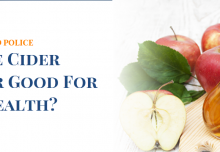Beware of Sugar Hangovers
It’s common knowledge that over-consumption of sugar can lead to health problems like weight gain, inflammation, lowered immunity, high blood sugar, diabetes, acidic blood, adrenal fatigue, and infections. But did you know it can also cause symptoms similar to a hangover from too much alcohol? Yup, it can. This state is affectionately called a “Sugar Hangover.” A sugar hangover happens after overindulging in simple or added sugars resulting in symptoms including brain fog, fatigue, headaches and even feelings of depression for some people.
Connecting the dots between what you eat and how you feel is an important exercise for anyone interested in improving their health and managing weight. When put under the proverbial microscope, simple and added sugars are are a dangerous nemesis of good health and weight management. Science now clearly proves that excess consumption of sugars can take our health on a downward spiral and yet, few of us ever get serious about limiting our intake.
It’s high time we all get serious about our health and start paying proper attention to the signals of distress our bodies give us when we over indulge–especially when it comes in the form of a sugar hangover.
Symptoms of a Sugar Hangover:
- Headaches and brain fog
- Mood swings (depression, anger, sadness)
- Lack of will power
- Fatigue or sleepiness
- Inflammation / joint pain
- Gas and bloating
- Diarrhea or constipation
- Skin or allergy symptoms
Like a hangover from alcohol, a sugar hangover also negatively affects your kidneys, liver, stomach and small intestines. Furthermore, sugar hangovers can also cause dehydration, electrolyte imbalances, gastrointestinal disturbances and problems sleeping.
SOME INTERESTING FACTS
- It is estimated that the average American consumes 25 teaspoons (½ cup) of sugar per day. Per current dietary recommendations, sugar consumption should be no more than 7 – 9 teaspoons of sugar per day.
- Sugar has gone from a condiment to a dietary staple, now found in 80% of foods and beverages.
- Sugar is a slow-acting poison; it overwhelms systems of the body and ignites inflammation.
BOTTOM LINE: Too much sugar, like too much alcohol, is damaging to your health and well-being.







